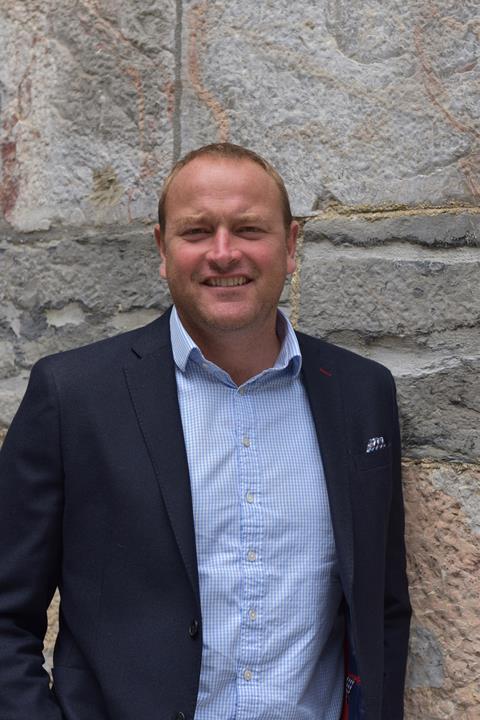When Cornwall Council set out to boost its local economy through capital delivery, it did not just tender a framework, it reimagined how public money could work harder for local communities. The resulting joint venture created a blueprint for local delivery which delivers the government’s goal of “getting Britain building” while ensuring a positive local legacy. James Beckly, senior partner at Ward Williams, explains how they did it

With ambitious new housing targets and Labour’s planning and infrastructure bill making its way through parliament, local authorities are facing increased pressure to deliver large-scale housing and infrastructure projects. But, getting the approach right for each region is critical.
Councils across the UK are already stretching limited capital budgets. The need to make every penny count has never been greater. Now, with pressure to build coming from central government, the latest challenge facing authorities is delivering at scale while ensuring social and economic value remains local.
From 2019 to 2025, Ward Williams partnered with Mace to deliver Cornwall county council’s built environment professional services (BEPS) framework under the Mace Ward Williams joint venture (MWJV). Together, we delivered over £500m in capital programmes across housing, education, transport, and regeneration. But our greatest achievement was not just what we built, it was how we built it, and the social and economic value that stayed in Cornwall.
Over the past five years, the partnership created 242 local jobs (including 27 apprenticeships), held 215 careers events, and delivered £128.1m in social and local economic value. Crucially, 67% of all spend went to micro, small or medium enterprises based in Cornwall.
For local authorities looking to achieve similar outcomes, the question is: what made it work?
Start with vision, not just procurement
Cornwall Council did not just run a procurement process. It started with a vision to build local capability, retain investment and deliver real social and economic impact across the region. That ambition was embedded in the DNA of the BEPS framework.
The council sought a delivery model that could integrate national expertise with local delivery – not a conventional client-consultant relationship, but a strategic partnership. By shaping the framework this way, they signalled to bidders that value for the region mattered as much as value for money.
As a result, Ward Williams was able to initiate a new kind of joint venture: one that was more than contractual. It was cultural: a team of likeminded local and national businesses, working together to deliver the outcome.
Choose partners who share your values
Ward Williams brought expertise in convening purpose-driven delivery teams. Mace brought national capacity and global insight. But the true strength of the JV came from our shared values, including a commitment to public service, community outcomes, and low-carbon delivery.
Cultural alignment should not be underestimated. In our case, it meant we could operate as a single team, not two organisations.
Staff wore the same badges. Teams shared the same goals. Problems were solved collaboratively, not contractually, resulting in improved quality of delivery.
Councils should consider how they assess cultural fit when selecting framework partners. Ask: will these organisations act as one? Will they invest in local succes,s rather than defaulting to historic suppliers? Will they collaborate with integrity?
Plan to deliver with local businesses
The BEPS framework was structured for long-term partnership. It was a six-year programme with consistent teams and shared KPIs. That stability enabled the JV to go beyond delivery and build local resilience.
From the start, our goal was to ensure that SMEs where not just a tick-box tender exercise, doomed to be sidelined later. We didn’t just subcontract to smaller businesses; we mentored them, co-delivered with them, and helped them secure future frameworks.
Our 13 core delivery partners were based in the region – including architects, engineers and surveyors – and many grew significantly through their involvement.
Frameworks should be designed to enable this kind of investment in place. That means longer durations, outcome-based KPIs, and incentives that reward collaboration and capability building.
Put social value at the core of delivery
Social value was a central plank of our operating model. We used the CITB employment and skills plan to track outcomes: jobs, apprenticeships, training, community engagement and more. Every project reported its social value contribution, and teams were empowered to innovate.
The results were transformational: 235 individuals received accredited training. £42.6m was spent locally through design and consultancy contracts alone. And 8,399 students were reached through careers outreach.
Our advice to councils? Be specific about what you want to achieve in the region. Set stretch targets. Make social value measurable and hold your delivery partners accountable.
Build a delivery culture, not just a contract
Perhaps the most powerful ingredient in MWJV’s success was the culture. This did not happen by accident. It was built through trust, shared leadership and transparency.
Joint leadership meant decisions were made quickly, teams felt empowered and, when challenges arose, there was no blame game – we solved them together.
It is easy to underestimate the value of culture in a procurement-driven system, but, in our experience, it is the difference between compliance and excellence.
A replicable model for place-based delivery
What happened in Cornwall was not a one-off. It is a replicable model. With the right framework design, cultural alignment and shared ambition, councils across the UK can retain investment, building local supply chains and delivering capital programmes which leave a legacy.
This is more important than ever in areas where the government is applying increased housing delivery targets at a local level to reach 1.5 million homes during this parliament.
Authorities have more influence than they think. By setting the tone at the top and designing frameworks with local outcomes in mind, they can shape not only what gets built, but who benefits.
That is not just project delivery. That is place-making – and it is the future of our industry.
James Beckly is a senior partner at Ward Williams


























No comments yet